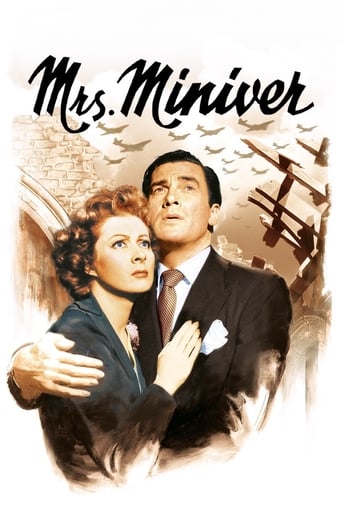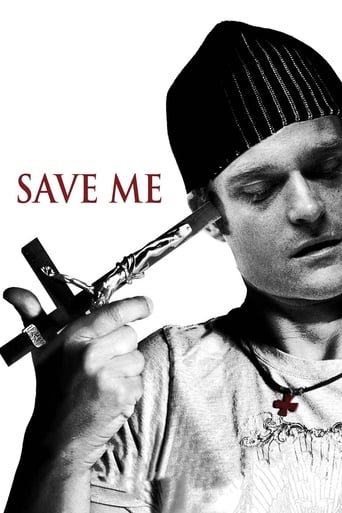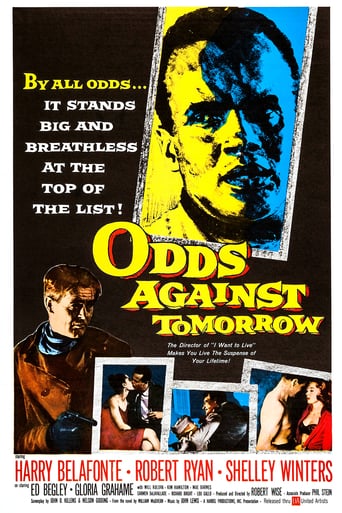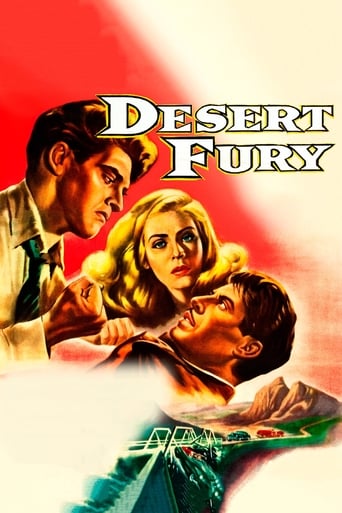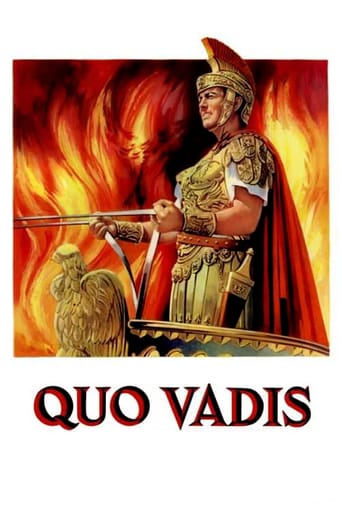
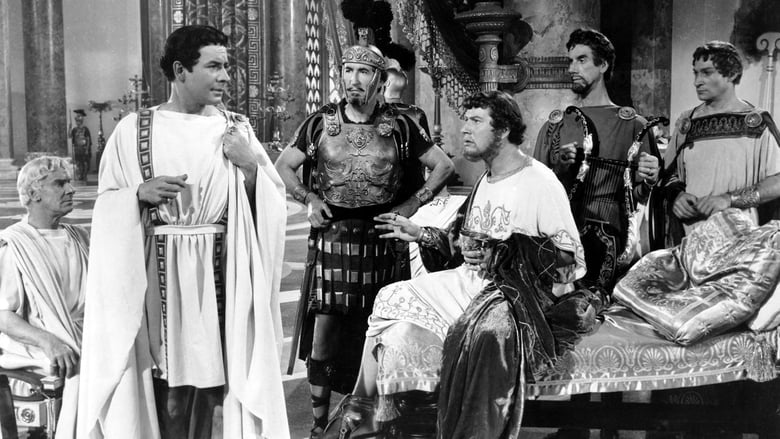
Quo Vadis (1951)
After fierce Roman commander Marcus Vinicius becomes infatuated with beautiful Christian hostage Lygia, he begins to question the tyrannical leadership of the despotic emperor Nero.
Watch Trailer
Cast
Similar titles


Reviews
Sorry, this movie sucks
One of my all time favorites.
This is a coming of age storyline that you've seen in one form or another for decades. It takes a truly unique voice to make yet another one worth watching.
The movie's not perfect, but it sticks the landing of its message. It was engaging - thrilling at times - and I personally thought it was a great time.
One of the long 'Epic' films of the 50s and 60s era, Quo Vadis is another one of those colorful Roman flicks from that era. However, it is not nearly as good as the truly wonderful epics such as Ben-Hur or El Cid due to a lot of small issues plaguing this film.The film does ofcourse have beautiful color cinematography and extraordinary and elegant costume design, but this seems like primarily the only way that might impress you. Even though it is at times beautiful to look at, it is ( With the exception of a couple of scenes ) mostly indoors and the couple of outdoor shots we get is usually the same one ( Mostly the one outside Nero's balcony which is shown multiple times ) so it doesn't nearly delight the eyes the way Ben-Hur or El Cid did with their outstanding outdoor cinematography. Yet one cannot deny it still has some beautiful indoor sets. Where the movie falls short is primarily the fact that there is little immersion in it due to a couple of illogical events taking place in the film. These events include Marcus Vinicius and Lygia's sudden forced attraction to eachother which makes little sense. Especially in Lygia's case there is no real reason why she should be attracted to him and STILL be attracted to him after basically purchasing her like she is some kind of slave. The entire romance is forced and is not helped by a pretty mediocre performance by Deborah Kerr who comes over as a literal line reader who delivers her lines very forced. Robert Taylor was a bit better but at the same time he is not the kind of Charlton Heston that basically immerses you into his character due to his fantastic screen presence and demeanor. The biggest problem however, is Nero. Quite possibly not really Peter Ustinov's fault, but the screenplays fault for displaying him like a kind of spoiled little child who somehow still manages to rule the greatest empire the world has ever seen. Once again, immersion take a big hit here because these kind of events just don't make any sense. Directors trying way too hard to try to show us what a psychopath and what an absolute ridiculous maniac Nero is results in him being a wimpy villain that you do not really hate or love, but just despise as a terribly annoying character. The movie has been often criticized for lacking sub text and that is definitely a true fact, as these kind of things basically insult the viewers intelligence.Towards the last hour or so of the film is where the characters are supposed to suffer and bring out an emotional response in the viewer, but since all our main characters are just poorly developed and not very well acted and also seem to do weird things ( Marcus's suddenly seeing that Nero is insane, as if he couldn't tell earlier ), our emotional connection to them isn't that great at this point. We are also supposed to hate on Nero, which is shown shamelessly without any sub text during the entire film by his ridiculous portrayal, yet due to this we do not really hate him but loathe his terrible character. One of the greatest film composers, Miklos Rozsa, did compose the music for this film, yet compared to Ben-Hur or El Cid which he also composed, while not bad, it still seemed to lack a tugging at the heartstrings kind of composition that both of those did have. But i do believe Rozsa really could not have saved the mediocrity of this film, that blame lies by the director and screenwriters.It is a beautiful epic sometimes, with a good ( Yet as said before not one of Rozsa's greatest ) musical score & costume design. But the little sense all of the characters make in their respective world of 'Quo Vadis' makes for an experience that is not as emotionally engaging as it would like to be, resulting in a visually impressive yet emotionally bleak film.
Sigh.....I might be more tempted to be religious myself if it ever seemed like religious people were having any fun. Instead, there are movies like "Quo Vadis," where Christians display all the vivacity of a wooden nativity scene."Quo Vadis" ushered in an era of Hollywood Biblical epics, stiff, pious, unwatchable pageants sprawled across movie screens in garish Technicolor. This three-hour film comes to life only a few times, almost all of them when Peter Ustinov shows up on screen as Emperor Nero and devours the scenery around him. Things also perk up a bit when the Christians are fed to the lions, a moment that's supposed to horrify us but one that we instead welcome with a sense of relief that we won't have to spend any more time with these boring and emotionless people. Even these scenes are rather desultory and could have taken some lessons from Cecil B. DeMille's jaw-droppingly tacky depiction of the same events in "The Sign of the Cross" from 1933.Deborah Kerr is lovely as always, but she fades into the background as the film's heroine, a crime for which I can never forgive the supremely pedestrian director Mervyn LeRoy. When you let Deborah Kerr fade into the background, you should have your DGA card revoked. Instead, he gives most of the screen time to Robert Taylor, who plays a Roman soldier like a macho, and a rather dim one at that. This film talks and talks and talks and talks for three hours and left me thinking that if I had been alive at the time, I would have wanted to hang out with Nero. At least there would have been better food.The Academy went ga-ga over this film and dutifully handed out eight Oscar nominations to it, though it went home completely empty handed. It was nominated for Best Picture, Best Supporting Actor (Ustinov), Best Supporting Actor (Leo Genn, another bright spot in the cast if only because his British accent makes the wooden dialogue more palatable), Best Color Art Direction, Best Color Cinematography, Best Color Costume Design, Best Film Editing, and Best Dramatic or Comedy Score by Miklos Rosza, one of those jangling, harsh scores that appear to be a prerequisite for Biblical epics.Grade: D+
This is an incomplete review as my wife and I could only take about an hour and a half of it. As for the acting, it's not bad for an older movie. The problem we had with the movie, and it's a major one for us, is that Christianity is wrongly portrayed. I realize that it may not be a problem for everyone, but Christianity is portrayed, pretty much as Judaism. If the faith of the female lead were Jewish, I would have been able enjoy the movie. But to have her portrayed as a Christian, and yet Christianity portrayed as a list of do's and don't's, takes away from the impact of the movie. I know that many would ask me, "What do you mean? Christianity IS a list of do's and don't's." And I know that's what a lot of people think it is. But Christianity is about how humanity cannot reform themselves... that we are separated from God by our rebellious hearts and wills...that there is only one way for us to return to a relationship with God...and that is to trust in what Jesus did for us on the cross. We don't reform ourselves to be acceptable to God. That's impossible. We accept the free offer of forgiveness that Jesus extends to us. We accept His forgiveness, and only then can we enter into a whole new relationship with Him...having the guilt for our shortcomings and rebellion cast as far as east is from west.But the movie portrays Christianity as a religion in which the followers of Jesus simply do the right thing.
Robert Taylor and Deborah Kerr together with Peter Ustinov star in this movie adaption of Henryk Sienkiewicz's classic 1896 novel entitled "Quo Vadis".This tells the story of a love story between an agnostic Roman soldier Marcus Vinicius and a Christian woman Lygia during a time wherein Emperor Nero was into the persecution of Early Christians during the first century. Mervyn LeRoy was the director of the classic epic film released in 1951.No question that Quo Vadis remains a popular film after more than 60 years since it has been released.It provides a great depiction of the persecution and martyrdom of the Early Christians during the time of Emperor Nero.We also witness great acting from the stars particularly Robert Taylor and Deborah Kerr as they provided a great performance of the lead characters Marcus Vinicius and Lygia and most especially Peter Ustinov as cruel and insane Emperor Nero.No wonder that Ustinov won one of the eight Oscars that movie has garnered in 1952 particularly that year's Best Supporting Actor as well as Best Picture. Added to that,a viewer can see that great money has been spent on its production particularly its costumes,production set up and cinematography. It also was shot on location in Rome where the story took place.Finally,it has also great and memorable historic scenes such as the burning of Rome and the crucifixion of Saint Peter upside down.Overall,it is one of the best movies ever released.



